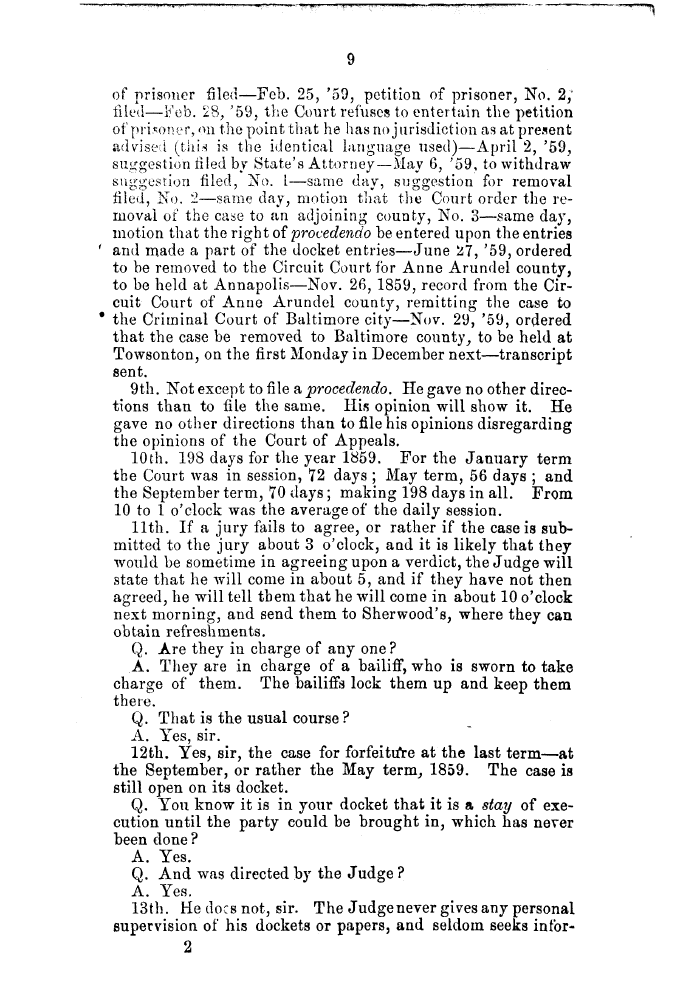|
of prisoner filed—Feb. 25, '59, petition of prisoner, No. 2,' filed—Feb. '28, '59, the Court refuses to entertain the petition of prisoner, on the point that he has no jurisdiction as at present advise;! (this is the identical language used)—April 2, '59, suggestion riled by State's Attorney—May 6, '59, to withdraw suggestion filed, No. I—same day, suggestion for removal filed, No. 2—same day, motion that the Court order the removal of the case to an adjoining county, No. 3—same day, motion that the right of procedendo be entered upon the entries and made a part of the docket entries—June 27, '59, ordered to he removed to the Circuit Court for Anne Arundel county, to be held at Annapolis—Nov. 26, 1859, record from the Circuit Court of Anne Arundel county, remitting the case to the Criminal Court of Baltimore city—Nov. 29, '59, ordered that the case be removed to Baltimore county_, to be held at Towsonton, on the first Monday in December next—transcript sent.
9th. Not except to file a procedendo. He gave no other directions than to file the same. His opinion will show it. He gave no other directions than to file his opinions disregarding the opinions of the Court of Appeals.
10th. 198 days for the year 1859. For the January term the Court was in session, 72 days ; May term, 56 days ; and the September term, 70 days; making 198 days in all. From 10 to 1 o'clock was the average of the daily session.
llth. If a jury fails to agree, or rather if the case is submitted to the jury about 3 o'clock, and it is likely that they would be sometime in agreeing upon a verdict, the Judge will state that he will come in about 5, and if they have not then agreed, he will tell them that he will come in about 10 o'clock next morning, and send them to Sherwood's, where they can obtain refreshments.
Q. Are they in charge of any one?
A. They are in charge of a bailiff, who is sworn to take charge of them. The bailiffs lock them up and keep them there.
Q. That is the usual course ?
A. Yes, sir.
12th. Yes, sir, the case for forfeiture at the last term—at the September, or rather the May ternr, 1859. The case is still open on its docket.
Q. You know it is in your docket that it is a stay of execution until the party could be brought in, which has never been done ?
A. Yes.
Q. And was directed by the Judge ?
A. Yes.
13th. He docs not, sir. The Judge never gives any personal supervision of his dockets or papers, and seldom seeks infor-
2
|

